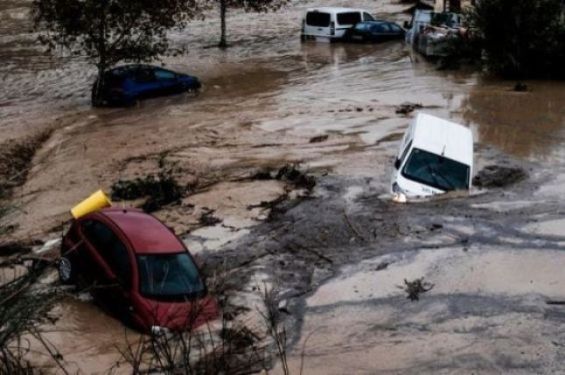Believing that solidarity during crises and individual contributions play the most significant role in overcoming challenges, and that supporting those in need strengthens bonds and builds a brighter future, Moroccans from both within and outside Spain rushed to assist flood victims in Spain's Valencia region.
Kamal Lmrini Loukili, president of the Al Nour Mosque in Beniparrell, a municipality in the Valencia region severely affected by the floods, told Yabiladi: «My family and I lost four cars, and the mosque suffered significant damage, with its doors and windows torn out and carpets and equipment inside ruined».
Despite the damage to the mosque, it opened its doors to associations and volunteers during this difficult time. Loukili added, «We stored the aid we received—including food, clothing, and blankets—and provided assistance to everyone who sought help, whether Moroccan, Spanish, or of any other nationality. We also designated a space for cooking and distributing food to those in need».
The mosque issued a call for volunteers, which was met with an overwhelming response. Loukili explained, «We organized work on a rotating basis. Many people have lost their homes, and we are cooperating to host some of them in our homes». He further clarified, «Residents of ground floors were the most severely impacted».
Loukili noted that the ordeal demonstrated great solidarity among residents. «Through their simple yet effective efforts, Moroccans managed to change some preconceptions about them, earning great respect in a short period».
Solidarity bringing Moroccans together
Moroccans also traveled from distant areas to help. Bouamama Koulali Kassouri, a member of the General Coordination of Moroccans in Spain (Coordinadora General de Marroquíes en España), traveled 180 kilometers from Crevillent, Alicante, to Valencia.
He told Yabiladi: «We arrived at the site on the fourth day of the disaster, feeling it was our duty to act. We prepared two trucks loaded with essential food supplies. Later, we began distributing hot meals, visiting the affected area every two or three days. For each meal, we distribute about 2,000 loaves of bread along with breakfast, lunch, and Moroccan dishes like msemen and harcha».
«The food we distributed was prepared with the help of Moroccan restaurants in the area, which volunteered to provide ready meals. We purchased the meat and other necessary ingredients, and the restaurants handled the cooking».
In addition, Moroccan women volunteered to help with cooking. Qassouri added, «Moroccan solidarity has become well-known here, as Spaniards recognize our readiness to act in times of need. For example, during the COVID pandemic, we were the first association to distribute 100,000 masks».
This display of solidarity was deeply appreciated by Spaniards. «When we knocked on doors to distribute food, some people cried, surprised that a Moroccan was helping them. Even those who had a negative image of Moroccans quickly changed their minds after witnessing our solidarity», Kassouri said.
Moroccans from other European countries also joined the relief efforts. Mohamed Ziani, a Moroccan human rights activist residing in Germany and a member of the Tuisa Foundation, told Yabiladi: «In every disaster, we ensure to visit the site and provide assistance. We arrived here last Friday».
«During any intervention—whether in the Turkey or Al Hoceima earthquakes—we first assess the needs of affected residents through field visits, carefully noting all their requirements, and then proceed to the purchasing phase. We followed the same approach here».
Ziani explained, «When we buy supplies, we make sure to purchase them from affected local merchants to support them economically. Additionally, we prepare and distribute food daily».
This spirit of solidarity was not limited to Moroccans. It included people of all nationalities, and Ziani remarked that this disaster «brought people together, regardless of their backgrounds and religions, creating a wonderful image of unity and compassion».
It is worth noting that the death toll from the floods in Spain has risen to 224, following the severe devastation in the southeastern regions of the country—one of the worst floods Spain has experienced in decades.





 chargement...
chargement...













